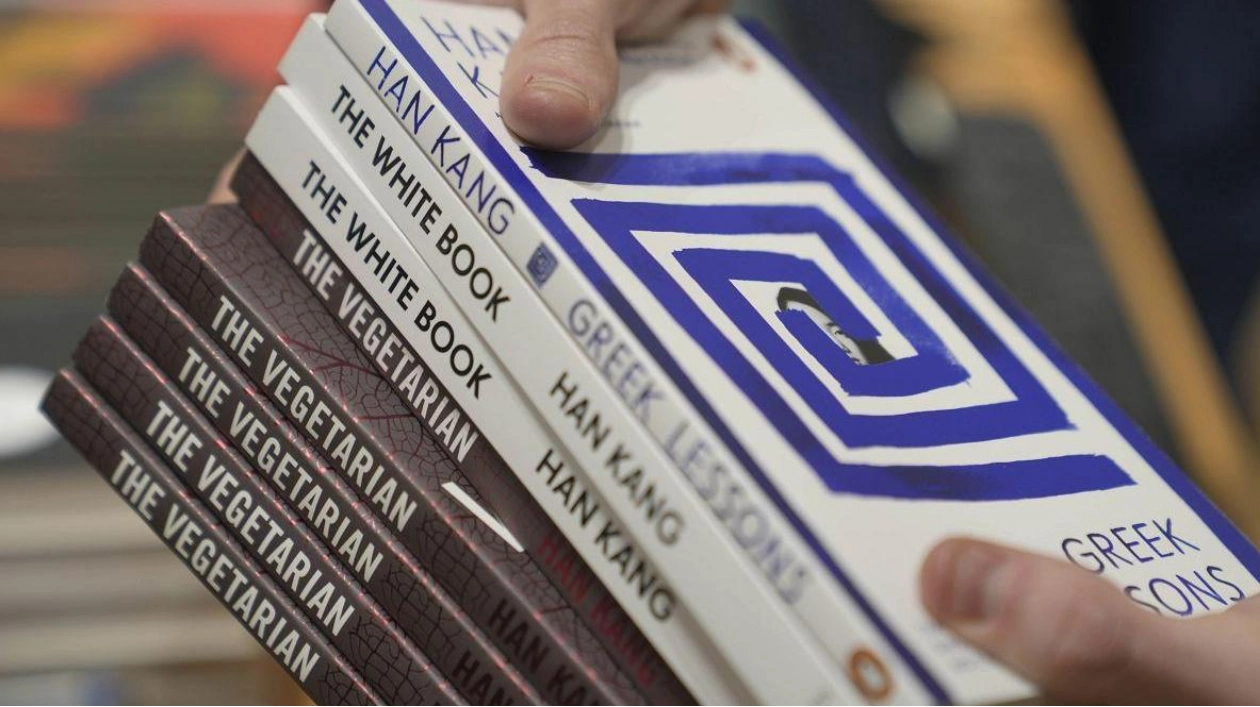South Korean author Han Kang has been named the 2024 Nobel Prize laureate in Literature, with the Swedish Academy lauding her "intense poetic prose that confronts historical traumas and exposes the fragility of human life." This marks a historic moment as Han, 53, becomes the first Asian woman to receive the prestigious award and only the second Korean to do so. Born in Gwangju in 1970, Han moved to Seoul as a child and pursued her studies in Korean Literature at Yonsei University. She began her literary career in the 1990s by publishing poems and short stories, with her first novel, "A Love of Yeosu," debuting in 1995.
In South Korea, Han has long been celebrated in the literary community, earning accolades such as the Korean Fiction Award, the Yi Sang Literary Award Grand Prize, the Dong-in Literary Award, and the Ho-Am Prize in the Arts, among others. Internationally, she has also garnered significant recognition, including the International Booker Prize, the Premio Malaparte, the San Clemente Literary Prize, the Prix Médicis étranger, and was elected as a Royal Society of Literature International Writer in 2023.
For those unfamiliar with Han Kang's work, her novel "The Vegetarian," published in 2007 and based on her 1997 short story "The Fruit of My Woman," is a good starting point. This novel, translated into English by Deborah Smith, won the International Booker Prize in 2016 and marked Han's entry into the global literary scene. "The Vegetarian" tells the story of Yeong-hye, a woman in middle-class Seoul who stops eating meat, leading to a breakdown of societal norms and family dynamics.
Determining Han's latest novel depends on whether you read Korean and your preference for original publication versus translation. For Korean readers, her most recent work is "Don’t Say Goodbye," published in 2021, which is set to be translated into English by Emily Yae Won and Paige Aniyah Morris next year. Prior to this, her novel "White" was released in Korea in 2016 and translated into English as "The White Book" in 2017. For international audiences, Han's newest novel is "Greek Lessons," originally published in Korea in 2011 as "Greek Time." Translated by Smith and Yae Won, it follows a mute woman's journey through an Ancient Greek class as she seeks to reclaim her voice.
Despite a substantial body of work, Han's novels available in English are relatively few. However, her Nobel Prize win may prompt more translations, similar to the trend seen with French writer Annie Ernaux. For non-Korean speakers, key works to explore include "The White Book" and "Human Acts." "The White Book," set in post-World War II Poland, is a profound meditation on grief through 65 white objects. "Human Acts" is set during the Gwangju Uprising of 1980 and offers insight into a pivotal moment in South Korean history.






